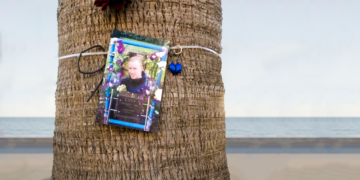Thousands of dead fish have been dumped on the seabed after getting caught in trawl nets off the coast of Scotland. This devastating sight was discovered by marine conservationists who were conducting a routine survey of the area. The sheer scale of the incident has sparked outrage among environmentalists and marine biologists, who are calling for stricter regulations to prevent such mass casualties in the future.
The dead fish, which included a variety of species, were found scattered across the ocean floor, their lifeless bodies a stark reminder of the dangers faced by marine life in the fishing industry. It is believed that the fish became entangled in the trawl nets and were unable to escape, ultimately suffocating or dying from injuries sustained during the capture process. The exact number of fish killed in this incident is still unknown, but estimates suggest that it could be in the thousands.
This tragic event highlights the need for more sustainable fishing practices that minimize harm to marine ecosystems. Trawl nets, which are commonly used by commercial fishing vessels, have long been criticized for their destructive impact on marine life. Bycatch, the unintentional capture of non-target species, is a major issue in the fishing industry and can have devastating consequences for vulnerable populations.
The Scottish government has vowed to investigate the incident and take action to prevent similar incidents from occurring in the future. Conservation groups are calling for stricter regulations on fishing activities, including the use of more selective gear and the implementation of marine protected areas where fishing is restricted. It is hoped that these measures will help to reduce the number of fish deaths caused by trawl nets and protect the fragile marine ecosystems off the coast of Scotland.
In the meantime, marine conservationists are working to clean up the seabed and remove the dead fish to prevent further damage to the environment. The sight of thousands of lifeless fish serves as a stark reminder of the urgent need to protect our oceans and the creatures that call them home. This incident should serve as a wake-up call to the fishing industry and policymakers to prioritize sustainability and conservation in their practices.
As the investigation into this tragic event continues, it is clear that more must be done to protect marine life from the harmful effects of human activities. The dumping of thousands of dead fish on the seabed is a stark example of the consequences of unsustainable fishing practices, and serves as a sobering reminder of the fragility of our oceans. Only through concerted efforts to promote conservation and sustainable fishing can we hope to preserve the rich biodiversity of our marine environments for future generations.































































